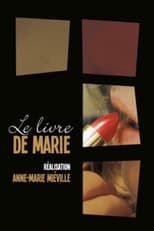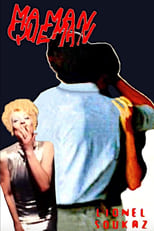

Copi
Born: November 20, 1939
Died: December 14, 1987
in Buenos Aires, Argentina
Died: December 14, 1987
in Buenos Aires, Argentina
Raúl Damonte Botana (November 20, 1939, Buenos Aires – December 14, 1987, Paris), better known by the nom de plume Copi (from "copito de nieve", Spanish for "little snowflake"), was an Argentine writer, cartoonist, and playwright who spent most of his career in Paris.
Damonte spent most of his youth in Montevideo. His maternal grandfather was the journalist Natalio Félix Botana and his father was the journalist Raúl Damonte Taborda, an antiperonist Radical politician and director of the journal Tribuna Popular. Raúl showed an early talent for drawing and, from his adolescence, contributed caricatures to his father's publication and to the satirical magazine Tía Vicenta.
His father's political activities forced the family into exile in Uruguay, Haiti, and later New York City. He finally settled in Paris, where he embarked on a career as a cartoonist for such newspapers as Le Nouvel Observateur. His most notable character during this period was La Femme assise, The Sitting Woman.
He was a member of Tse, an association of Franco-Argentine artists with whom in 1969 he staged a biographical play about Eva Perón. His theatrical works, influenced by Samuel Beckett, are characterized by the failure of characters to communicate.
Copi also collaborated with the avant-garde group Pánico, which included Fernando Arrabal, Roland Topor, and Alejandro Jodorowsky.
Copi contributed cartoons to the magazine Gai Pied.
He died of an AIDS-related illness in 1987, at the age of 48.
Source: Article "Copi" from Wikipedia in English, licensed under CC-BY-SA 3.0.
Damonte spent most of his youth in Montevideo. His maternal grandfather was the journalist Natalio Félix Botana and his father was the journalist Raúl Damonte Taborda, an antiperonist Radical politician and director of the journal Tribuna Popular. Raúl showed an early talent for drawing and, from his adolescence, contributed caricatures to his father's publication and to the satirical magazine Tía Vicenta.
His father's political activities forced the family into exile in Uruguay, Haiti, and later New York City. He finally settled in Paris, where he embarked on a career as a cartoonist for such newspapers as Le Nouvel Observateur. His most notable character during this period was La Femme assise, The Sitting Woman.
He was a member of Tse, an association of Franco-Argentine artists with whom in 1969 he staged a biographical play about Eva Perón. His theatrical works, influenced by Samuel Beckett, are characterized by the failure of characters to communicate.
Copi also collaborated with the avant-garde group Pánico, which included Fernando Arrabal, Roland Topor, and Alejandro Jodorowsky.
Copi contributed cartoons to the magazine Gai Pied.
He died of an AIDS-related illness in 1987, at the age of 48.
Source: Article "Copi" from Wikipedia in English, licensed under CC-BY-SA 3.0.
Movies for Copi...

Title: The Book of Mary
Character: L'homme dans le train
Released: January 23, 1985
Type: Movie
Anne-Marie Miéville, frequent collaborator of Jean-Luc Godard, made this partner piece to Godard's own 'Je vous salue, Marie'. Marie, eleven years old, is experiencing difficult times. Her parents will separate. The perception of her universe is profoundly disturbed. This exacting portrait of a child immersed in her books, music and dancing casts a dispassionate yet touching eye on the girl's reaction to the new upheaval in her life.


Title: Maman que man
Released: October 15, 1982
Type: Movie
Several guests who are lesbian or gay go to a home for Christmas.


Title: The Butcher, the Star and the Orphan
Character: The bridegroom
Released: February 19, 1975
Type: Movie
A butcher dreams of becoming a famous director. He hires stars that he begins to kill.


Title: Apostrophes
Character: Self
Released: January 10, 1975
Type: TV
Apostrophes was a live, weekly, literary, prime-time, talk show on French television created and hosted by Bernard Pivot. It ran for fifteen years (724 episodes) from January 10, 1975, to June 22, 1990, and was one of the most watched shows on French television (around 6 million regular viewers). It was broadcast on Friday nights on the channel France 2 (which was called "Antenne 2" from 1975 to 1992). The hourlong show was devoted to books, authors and literature. The format varied between one-on-one interviews with a single author and open discussions between four or five authors.
